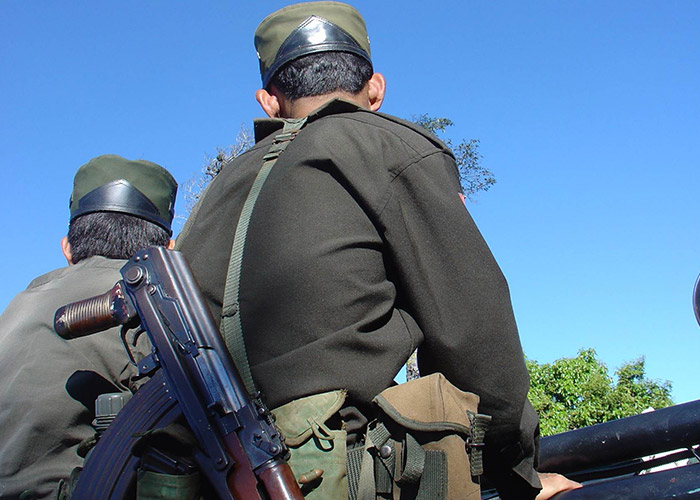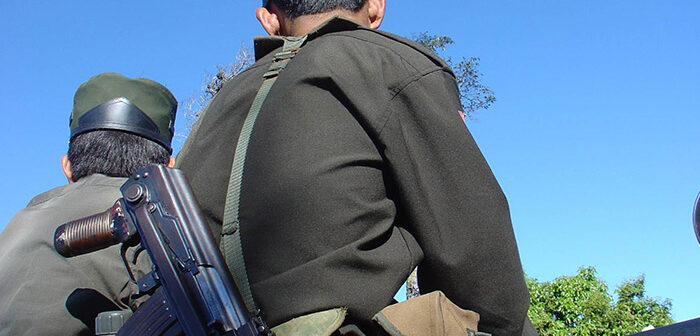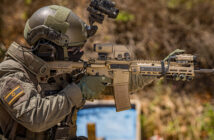
By Antonio Graceffo
Myanmar’s democratically elected government in exile, the National Unity Government (NUG), is struggling for international recognition and support. Meanwhile, ill-equipped rebel armies backing the NUG are engaged in the world’s longest-running war against the military coup government.
The war in Myanmar began over 70 years ago when the Karen National Union, the political party of the Karen ethnic group, declared independence. Since then, various ethnic groups and states have taken up arms against the repressive military government, seeking independence. In 2021, after the Burmese military nullified the democratic election won by the National League for Democracy (NLD) and seized control, the conflict shifted. Isolated ethnic armed organizations (EAOs) began uniting in an increasingly cohesive alliance, fighting together to establish a federal democracy.
After the coup, elected members of parliament from the National League for Democracy (NLD) fled the country and established a government in exile, the National Unity Government (NUG). Historically, the Burman (Bamar) majority has controlled the government and the military. For the first time in Myanmar’s history, this new government includes representatives from ethnic armed groups (EAOs) and their political parties, as well as other pro-democracy organizations. Only 47% of the NUG’s cabinet members are Bamar, and only 38% are from the NLD, demonstrating the inclusive nature of this new government.
Due to the military’s crackdown on opposition, the NUG operates primarily in exile, with members spread across different countries, conducting activities online and through various international platforms. Key figures include President Win Myint and State Counsellor Aung San Suu Kyi, both currently detained by the military junta, and acting leaders such as President Duwa Lashi La and Prime Minister Mahn Winn Khaing Thann.
The NUG claims to be the legitimate government of Myanmar, opposing the military junta. Its primary functions include coordinating resistance against the military regime and supporting the Civil Disobedience Movement (CDM).
In May 2021, shortly after the coup, the NUG established the People’s Defense Forces (PDF) as the armed wing of the pro-democracy movement. The main objectives of the PDF are to protect civilians from the military junta’s violent crackdown, counteract the military’s control, and support the restoration of democracy in Myanmar. The PDF is primarily composed of Burman (Bamar) people but also includes some ethnic minorities. This is significant because, until the coup, ethnic groups served in EAOs while there was no significant armed Burman resistance movement. PDFs have received training from the EAOs, and some ethnic members are part of the PDFs as well. Unlike the EAOs, which are largely composed of individuals accustomed to the harsh realities of guerrilla warfare in rural areas and jungles, the PDFs consist of students, city dwellers, former government workers, and some deserters from the Tatmadaw. The PDF operates as a decentralized network of local defense forces across various regions and states in Myanmar.
While they have some coordination with the NUG, many PDF units operate independently or in collaboration with ethnic armed organizations (EAOs). The PDF engages in guerrilla warfare tactics against the Myanmar military (Tatmadaw), including ambushes, hit-and-run attacks, and sabotage operations targeting military convoys, outposts, and supply lines. According to a commander of the Karenni Army (KA), one of the EAOs that supports the NUG, the soldiers make improvised explosive devices (IEDs) to mine roads and hinder the Tatmadaw’s ability to resupply. He explained that the devices are battery-powered, unreliable, and often fail to explode. “And once it rains, they stop working.” This stands in sharp contrast to the Tatmadaw, which has an endless supply of Russian and Chinese munitions.
The NUG is supported by a significant portion of the Myanmar population, particularly those who oppose the junta, and various ethnic armed organizations. Ethnic minority groups seeking greater autonomy and federalism also back the NUG. The NUG works to obtain international recognition and support as the legitimate government of Myanmar.
Although they have not yet achieved international recognition as the official government of Burma, the NUG has made great strides, opening a representative office in Washington, DC, and securing representation at the United Nations through their Ambassador Kyaw Moe Tun.
Some countries and organizations express sympathy for the NUG’s cause, including the United States and the European Union. The Association of Southeast Asian Nations (ASEAN), a ten-nation group of which Myanmar is a member, has failed to adopt a unified position on the coup or the NUG. While some ASEAN member countries have expressed support for the NUG’s goals and condemned the military coup, they claim to want to remain neutral. Various international human rights organizations and advocacy groups also support the NUG’s aims. However, these entities are cautious about providing direct support due to concerns about escalating violence and regional stability.
The US has shown significant support for the NUG by engaging in dialogue and providing humanitarian aid. While the US has not formally recognized the NUG as the government of Myanmar, it acknowledges the NUG’s role as a key stakeholder in the country’s future. Similarly, the EU has supported the NUG by condemning the military coup and providing financial aid for humanitarian efforts, maintaining diplomatic engagement without granting official recognition. The UK has also engaged with the NUG, calling for the restoration of democracy in Myanmar, with British officials meeting NUG representatives to reinforce political and moral support.
Australia has interacted with the NUG and provided humanitarian assistance, though it has not extended full recognition. Some members of the Association of Southeast Asian Nations (ASEAN) have engaged with the NUG to varying degrees, but the organization as a whole has not taken a unified stance due to differing member state positions on the Myanmar crisis.
While direct financial aid to the NUG might be limited, many countries have imposed sanctions on the Myanmar military regime, restricting its access to resources and financial systems. This indirectly supports the NUG by weakening the junta. As of now, there is no public evidence of foreign governments providing weapons to the NUG.
David Eubanks, head of the Free Burma Rangers (FBR), a faith-based aid organization on the frontlines in the war in Burma, said that it was a good sign that the US State Department and ministries from other Western democracies have been willing to meet with the EAOs and the NUG. However, he added, “A lot more is needed. Our request is that the NUG and EAOs be publicly recognized as the true representatives of Burma.”
In addition to recognizing the NUG, the EAOs also need foreign military support, or the war will never end. Several EAO commanders and political leaders I spoke to emphasized that they need Stinger missiles because they have no way of defending themselves or civilians from jet fighters and helicopters. They also requested that sanctions be tightened to cut off all jet fuel to the Myanmar junta, forcing their aircraft out of commission.






